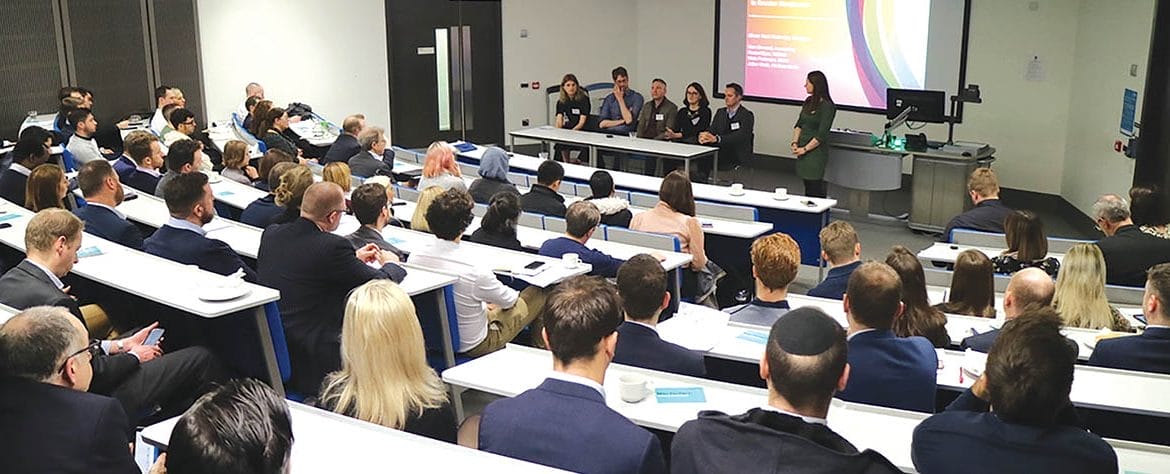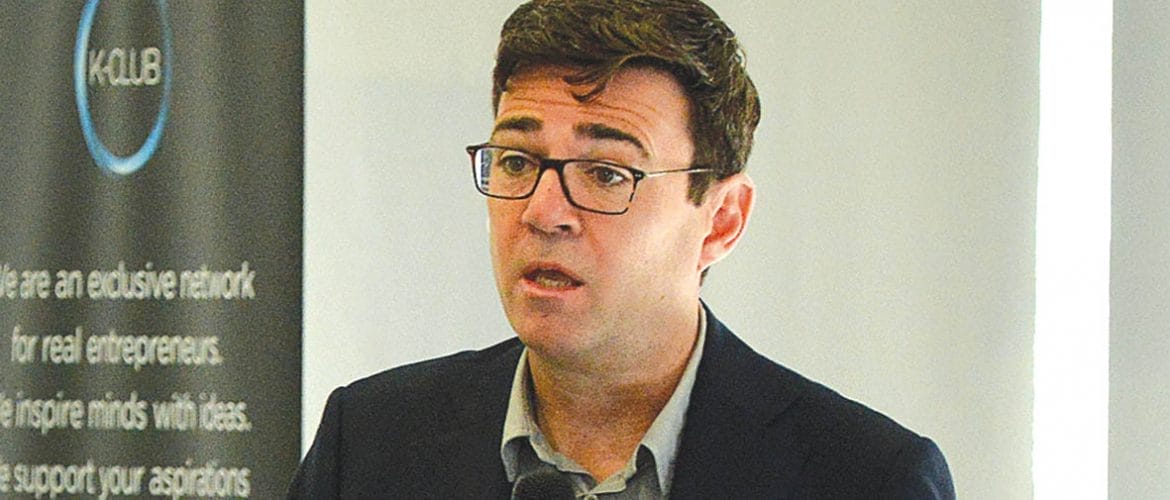By Ilona Alcock
Mayor Andy Burnham is determined to make Greater Manchester the first zero carbon region by 2038. To do this, we need a 15% year-on-year carbon reduction and the clock has already started ticking. It is an ambitious goal and one that requires everyone in the region – individuals, politicians and businesses – to make immediate transformational changes. pro-manchester’s Green Economy committee brought together a cross sector panel of experts, hosted by Steve Connor, Creative Concern, to unpick what this means for professional services.
What can businesses do to support the Green Agenda?
Jon Fletcher, Big Clean Switch, noted that we have only 12 years to avoid catastrophic climate change. Switching to renewable energy – both as individuals and businesses – is an easy first step to transformational change. Transport gets a lot of bad press in Manchester, so it was wonderful to hear about all the positive activity and plans. Nicola Kane leads on long term strategy at TfGM and sees the green agenda as an opportunity for change. Her key focus is on reducing the number of short car journeys. Currently a third of journeys under 1 km are made by car.
City of Trees is on a mission to plant three million trees in the region: quite literally a green agenda. The benefits include air quality, carbon reduction, improved biodiversity and an increase in physical and mental wellbeing. Sian Day is keen to engage more businesses in fundraising and volunteering. Joy Woods, Galliford Try, is a carbon literate trainer and passionate about not just constructing sustainable buildings but passing that ethos on to clients, employees and the sector as a whole. Her big ask is to get all companies to start viewing sustainability as an essential part of the business and to take significant action to reduce their carbon footprint.
How can technology help?
Galliford Try uses a variety of design and technology options for construction clients, and Joy is always keen to hear more case studies showing that smart buildings are worth investing in. These are particularly important when securing upfront investment from public sector bodies for long term environmental benefit.
City of Trees has used new software, iTree, to run a survey of 1,600 plots across Greater Manchester. This enables the charity to estimate the number of trees in the region, the canopy cover and biodiversity. Perhaps most importantly, it enables them to give a quantifiable financial value to trees, including the health impact, flood reduction and heat savings. Technology clearly has a central role in tackling carbon reduction and Jon expects huge scale innovations over the next 5 years. New products help to both reduce demand and to make demand more visible. However, it must not be forgotten that smart devices still need people to install them and implement the changes.
Innovation is at the heart of TfGM’s long-term strategy. Nicola noted that whilst technological developments form part of the solution, it is still about mindset. For example, autonomous vehicles could be used to provide cheaper, more efficient public transport services – or they could lead to an increase in private car ownership and be used for even more short journeys. One very positive impact of technology though has been seen in the ease of engaging the public and ensuring mass participation in consultations.
Over 6,000 comments have already been uploaded in relation to the Beelines project which has given a depth of local knowledge that would not have been gathered through traditional routes.
Can Manchester really do things differently?
To close the event, Steve passed over to Mark Atherton, director of environment at GMCA, to share his thoughts on the agenda and the next steps for the business community. He reminded delegates that meeting the 2038 target means that during our working lives, we need to stop using any form of carbon-based fuel. It’s not just about educating our children – who tend to know a lot more about climate change anyway – as they will not be in decision making roles in time to make an impact. Everyone needs to start taking action now.
Mark was pleased that the panel offered a cross sector approach and echoed the importance of collaboration through networks like pro-manchester. He invited all delegates to the next GM Green Summit, being held on 25 March 2019, and noted they are keen to engage with companies with a national footprint already working towards zero carbon. Financial services firms have an important role to play in creating more innovative ways to fund developments now, and to reap the long-term benefits. Mark recognised that the public sector must lead the way and improve energy efficiency across their own estate. Work currently being undertaken by GMCA includes new build standards, projects to meet 70% of heat demand locally, and a viability study with Arup to assess using real estate across the region for energy and heat generation.
Speaking regularly across the country about Greater Manchester’s zero carbon plans, Mark is often asked whether Greater Manchester can actually do something different. His answer? Of course we can!
And on that note, it’s over to the businesses, organisations and individuals in our region to make it happen.




